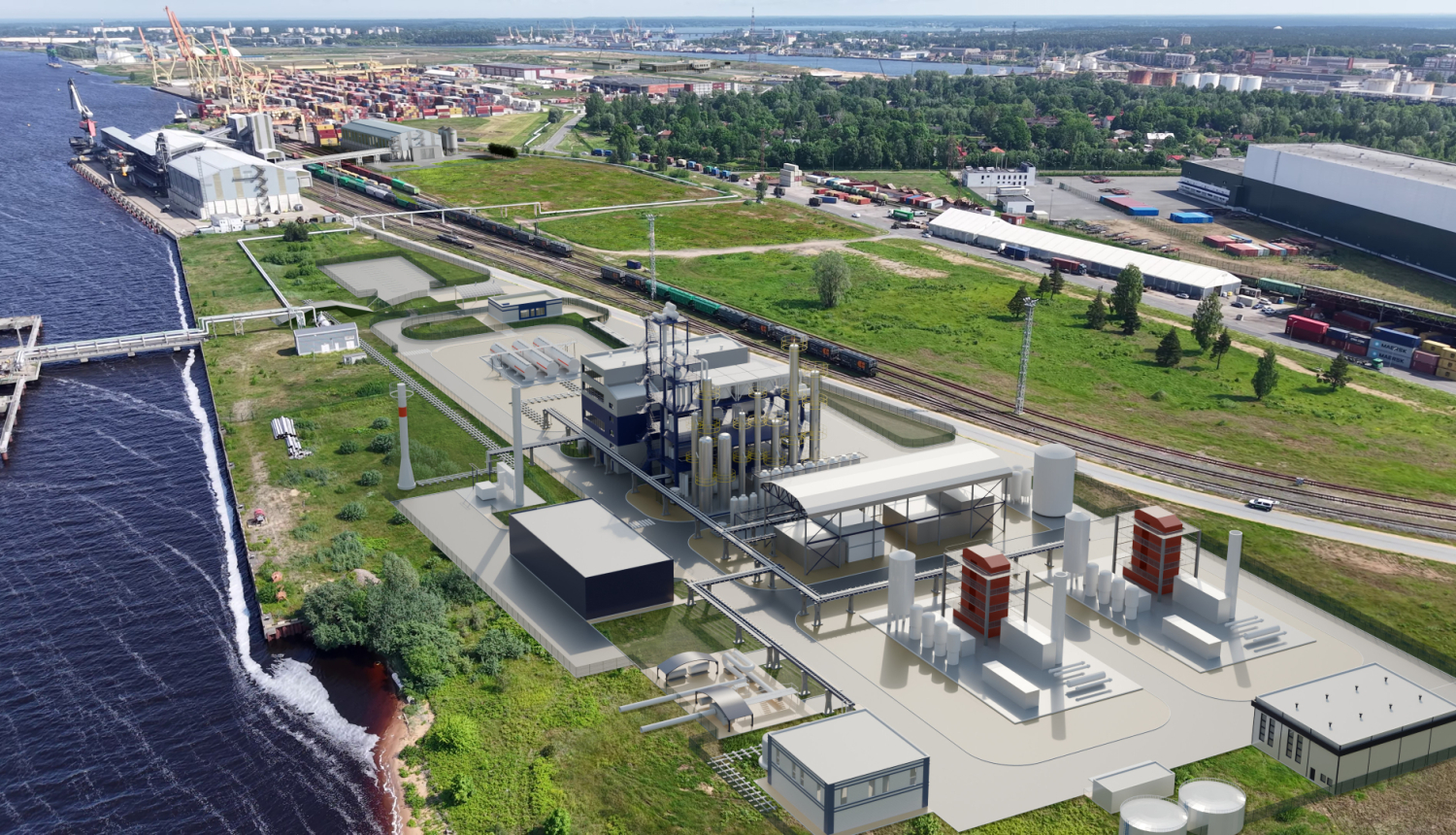BAKU, Azerbaijan, July 28. In the most dynamic area of Riga port, Kundziņsala, construction will begin on the Baltic States’ first renewable fuel production plant producing hydrotreated vegetable oil (HVO) and sustainable aviation fuel (SAF), Trend reports citing the Ministry of Transport of Latvia.
The company Amber Flow Fuels, investing 120 million euros and creating 120 highly qualified jobs, will start innovative, high value-added production within the next few years, supporting Latvia’s climate neutrality and Green Deal goals.
The transformation of Kundziņsala into the new center of Riga port involves several large industrial projects, specifically in the green energy production sector. Producing renewable energy-related products with high added value and strong demand is one of the cornerstones of Riga port’s future development. At the same time, it will significantly strengthen Latvia’s export capacity and energy independence.
The project is developed in cooperation with investors from Ukraine and Riga port company SIA PARS TERMINĀLS, and it is included in the list of priority investment projects by the Latvian Investment and Development Agency (LIAA). Currently, the new plant’s construction plan is under approval by the Riga city municipality’s Urban Development Department. Construction will start immediately after approval.
“The new plant is a step in modernizing our existing business. Together with Ukrainian partners, we will create economic independence from foreign supplies, thereby shortening logistics chains and obtaining high value-added products that are currently only imported in the Baltics. Such a factory will directly benefit both fuel traders and the aviation sector. The plant will also ensure growth for other environmental sector companies with which we plan to cooperate to provide raw materials that meet biofuel production standards,” explains Armands Sadauskis, co-owner of SIA PARS TERMINĀLS, outlining the main benefits of the new plant.
The planned factory capacity is about 236,000 tons of base raw material per year, from which 93,000 tons of HVO and 87,000 tons of SAF are expected to be produced. It is estimated that the plant in Riga port will be able to supply 100% of the SAF needed for the Baltic market. Seventy percent of the produced SAF will be exported, increasing Latvia’s exports by at least 150 million euros.
Innovative technologies will be used to produce renewable fuels, allowing the creation of ecological and competitive fuel alternatives from various natural production residues, mainly recycled vegetable oils. The planned plant is the first of its kind and unique at the Baltic level.
The renewable fuel production project is also an important step to promote Latvia’s energy independence and local production development, based on locally available resources. It will contribute both directly and indirectly to the local economy, improving the competitiveness of Latvian companies, considering that biofuels will be needed not only by airlines. At the same time, cooperation with Ukrainian investors will develop economically important partnerships in today’s geopolitical situation, which is especially important for both Latvia and Europe.







